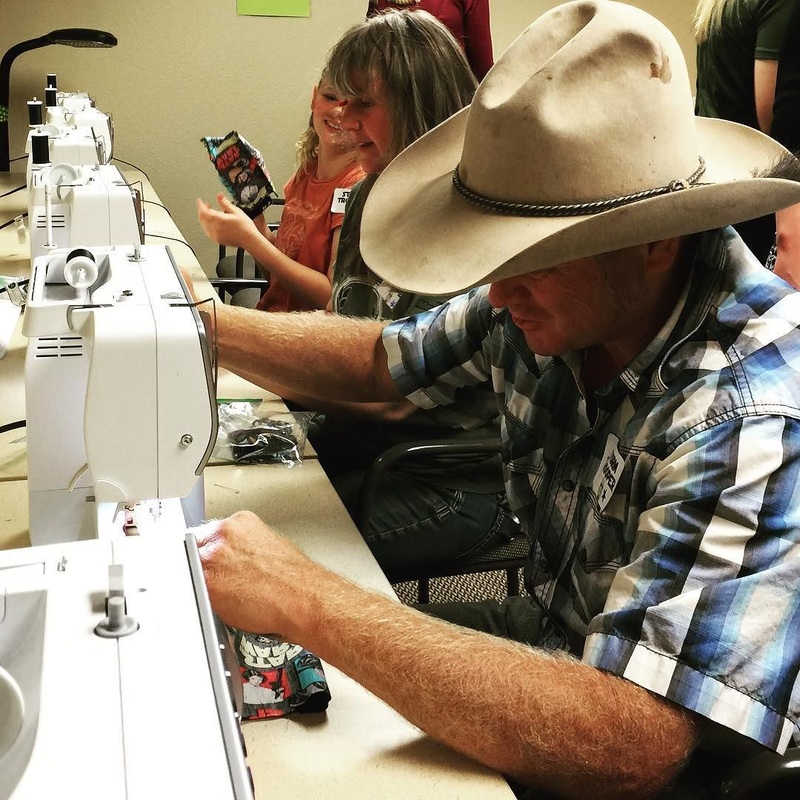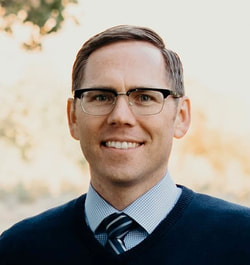|
This picture is of a farmer who brought his family to one of my 4-H Maker Nite activities, it's a wonderful example of never being too set in your ways to learn and try something new. People who see stories like this always ask me, "I see all the interesting things you do at work on your Instagram, but what is your actual job?" I usually respond with my elevator speech, "I'm an Extension Agent, I organize leadership and science experiences for ambitious people." Most of what I do at work is quite different than what others in my position do. Some have wondered how I get away with it. It's certainly not a secret. In this blog post I will share exactly how I innovate inside the primitive environment that is Extension. Few people know what an Extension Agent is, those that do are usually older. Ask anyone 60+ and they'll know all about what Extension is (we used to be very relevant before we stopped innovating about 20-30 years ago).
The job of county Extension Agent is old (over 100 years old). My actual title is "Extension Associate Professor," I am Extension faculty at Utah State University. What this means is I take the research-based information from the university and extend it to my community (Washington County, Utah). I do this through educational programs like robotics, coding, and maker 4-H clubs for youth and startup/innovation workshops and economic summits for adults. I spend a great deal of time writing grants so I can hire and train staff to teach and implement these programs. But the majority of my time is spent building relationships with community leaders and training volunteers who will lead out in these types of programs. This is how I scale my work, otherwise I would not be able to make broad impacts. I mentioned above that Extension stopped innovating, while that's not entirely true, we have certainly embraced the status quo with a great big bear hug. We love the status quo, it's warm, fuzzy and feels so safe. I don't know what it is inside of me, but I just can't accept things the way they are. I love change. I love new. I love different. I am curious and I have unlimited energy for innovating; trying something different that has an impact. I was asked at the 2015 NAEPSDP conference in San Diego, "How do you do these things in an environment where our administrator won’t let you?" I have pondered this for six months and here is my answer: Do small things, things that won’t get you fired (without asking) If the small thing made an impact, go to your administrator and give them full credit for what you did. But if it didn't work, tell them what you learned and take responsibility. If you reject the status quo and travel down this path you will get to do it again...and again. After you do that small thing 4 times, 6 times, 8 times...giving credit away each time, your administrator will eventually come to you and say, "Let's do it again, and do it even bigger!" I love this quote by Harry Truman: It is amazing what you can accomplish if you do not care who gets the credit. Who cares about the credit, it’s the work you’re after. The credit comes later, when you make an impact people will notice and you will get more credit than you ever imagined you would. If you're still not sure about doing small things, I hope you can recognize that in the year 2016 everyone has convening power. You have what it takes to bring people together. We're no longer in the industrial economy, we live in a connection economy, where we add value by connecting people. The most important thing you must understand about Extension work in the year 2016 is this: Connection creates value In his radical TED Talk, When ideas have sex, Matt Ridley pointed out There is nobody on the planet who knows how to make a computer mouse...the president of the computer mouse company doesn't know. He just knows how to run a company. The person on the assembly line doesn't know because he doesn't know how to drill an oil well to get oil out to make plastic, and so on. We all know little bits, but none of us knows the whole. If all the people in the supply chain could not come together (if they could not connect), then they couldn’t make a mouse. We couldn’t make almost everything we count on in this world. Who are you connecting? Who are you going to bring together? When will you say, "I’m going to organize a group with 5, 25, 75 or 100 people to come together to create value." No one is stopping you from doing the work of connection except the little voice in your head that keeps repeating, "You're not supposed to do that. Your administrator won't let you do it." Start with the small things. Give away credit. Connect people. Make an impact. Repeat.
0 Comments
Leave a Reply. |
Paul Hill, Ph.D.I design, plan, and evaluate economic development programs for Utah State University. Archives
September 2022
Search this site:
|


 RSS Feed
RSS Feed
